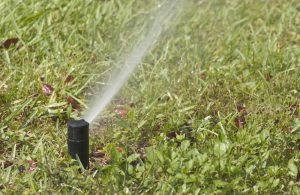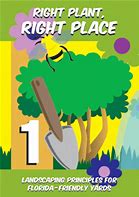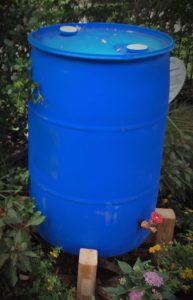Many of us are realizing the benefits of being outdoors connected to nature as we self-confine in our homes during mandatory COVID-19 precautions and recommendations. While our parks are closed, we are finding respite in our own gardens and landscape. If you are thinking of starting new projects in your landscape there are some things to consider.
For those new to gardening and as a reminder for all, please be aware we are currently experiencing moderate drought conditions, and it is ever more important that we practice water conservation in our gardens and inside our homes. However, there are things you can do in the garden now that will benefit plants and wildlife through this drought period while conserving water. We’ve also shared links on how to save water inside and outside below. Both are important.
Safety First
• Remember your own safety and comfort, temperatures are summer like, it is hot!
• Work in the cooler morning hours or late afternoon.
• Wear light colored, loose fitted clothing, closed toe shoes, and gloves.
• Take scheduled breaks to both cool off in a shady spot and rehydrate yourself!
• Drink water at scheduled times even if you are not thirsty or not sweating.
• Read the Warning Signs and Symptoms of Heat-Related Illness.
• Gardening can be strenuous, ease into it as you would any new exercise program.
Weeding and Mulching are two things you can do now while we wait for our rainy season to begin.
Weeds
• Hand pulling weeds can be very satisfying, you can immediately see the results of neat and tidy garden beds! And weeds compete for water and nutrients.
• Get them out! But be gentle, ease them out with hand tools to avoid disturbing roots of nearby plants you want to keep.
 Mulch
Mulch
Mulch after you weed, mulch will help control weeds and retain moisture in the soil.
Lawn and Grass
• For the moment if you do not have an irrigation system, leave the grass, it should come back to green once the rainy season begins. The average start date for our rainy season in South Florida is May 15th.

• If you do have an irrigation system make sure you are following year-round watering restrictions and all additional restrictions during this drought event as mandated by the South Florida Water Management District. You can contact our team for irrigation tips and to schedule a Landscape Irrigation and Rebate Program (LIRP).
Landscape in General
 First, take a walk in your yard in the cooler evening, you want to observe how your landscape plants weathered the day. Plants that are not in their optimum location will show stress from excessive heat, large rain events and drought. Plants can eventually expire in prolonged stress conditions and they are also more prone to pathogens and pests. Right Plant, Right Plant is even more important now and in the future with changing weather and climate conditions. Read Florida-Friendly Landscaping, the 9 Principles work together to create a healthy landscape that can better withstand harsh conditions.
First, take a walk in your yard in the cooler evening, you want to observe how your landscape plants weathered the day. Plants that are not in their optimum location will show stress from excessive heat, large rain events and drought. Plants can eventually expire in prolonged stress conditions and they are also more prone to pathogens and pests. Right Plant, Right Plant is even more important now and in the future with changing weather and climate conditions. Read Florida-Friendly Landscaping, the 9 Principles work together to create a healthy landscape that can better withstand harsh conditions.
 • Note light and water conditions for locations where wilted plants are growing. Wilted plants might not be planted in conditions that are optimum for their growth and may need to be relocated.
• Note light and water conditions for locations where wilted plants are growing. Wilted plants might not be planted in conditions that are optimum for their growth and may need to be relocated.
• If do find you plants that need to be relocated, wait for the rainy season! Hand water these plants until you can relocate.
• If you have plants that you planted in past few months you may need to hand water.
• A good rule of thumb is to watch everything that has not been in the ground for at least one rainy season. Plants should be well established after they have grown through three rainy seasons.
• Also check for insects and disease, both are on the increase in warmer weather and can unduly stress plants during drought conditions. If you find either, contact our office via email and you can also include a photo. We will identify and advise what is best to do and least harmful to your garden environment.
Shrubs & Smaller Plants
• Once shrubs and smaller plants are established in their optimum growing conditions, they are more drought resistant than lawns. In addition, established plants may not need additional water.
• Plants showing severe wilt should be hand water immediately and again in the cooler early evening hours. For moderate wilt, wait until the morning and check plants again. If they are still showing signs of wilt, then hand water.
• Consider relocating plants that are showing continued wilt and stress. You will need to wait until the rainy season for best results and to conserve water!
 Hand Watering
Hand Watering
 • If plants are showing slight stress, check the weather forecast for rain.
• If plants are showing slight stress, check the weather forecast for rain.
• If no rain is forecast or does not arrive, water in the early morning before 7:00 a.m. OR in the late afternoon 7:00 p.m.
• Use collected rain water from your rain barrel if you have one.
• No Rain Barrel? Use a garden hose with a spray nozzle. • Water the roots not the leaves.
• Watering with a hand held hose needs about three minutes to deliver 1/2″ water to the root zone.
Plants in Pots and Containers
• Plants in pots and containers do not have as much soil volume to hold moisture (water) and may show stress, hand water as needed.
• Consider replanting container plants into larger pots; increased soil volume will hold more water for growing roots.
• Any plants you do repot should be watered daily and kept in the shade for several days before easing them back into their spot in the garden.
• Also potted plants may be needed to be moved to shadier conditions as light and shade conditions may have changed as earth rotates around the sun and their current location may no longer meet their sunlight needs.
Raised Bed Edible Garden
 • Many edible plants that will grow in our South Florida climate are annuals and may be at the end of their growing season.
• Many edible plants that will grow in our South Florida climate are annuals and may be at the end of their growing season.
• Annual plants that are bolting than flowering and producing seeds should be phased out. Harvest and have a fresh feast and maybe keep a few plants to produce seed you can collect to regrow next season.
• Perennial Edibles that show signs of wilt may no longer be situated in optimum light conditions; you can consider using shade cloth or relocate to a more suitable once rainy season begins.
Rainy Season Tips
• When we do have an established pattern of rain, aka the rainy season, there are still good practices to follow as it may not rain every day and temperatures will still be hot.
• Watch the weather forecast and plant when we have afternoon rainstorms scheduled for several days in succession.
• Plant in mornings once afternoon showers are forecast for several days and avoid planting in the peak of heat during the day, it is stressful on plants and you!
• Cloud cover from early afternoon rainstorms also cools temperatures during the hottest part of the day.
• If you are holding off on installing new plants in your home garden or landscape for now, your plants may get a better start and actually catch up with the growth of plants installed earlier. Plants should have a better opportunity to develop a healthy, more robust root system if you plant once our rainy season has begun.
Can’t resist buying plants now? Keep them in a shady spot and hand water every day until rainy season begins. Make sure to check whether plants you decide to purchase and include in your garden are annuals or perennials, also note light and water requirements. This information should be included on the plant tag along with the name of the plant.
Additional Information
Florida-Friendly Landscaping TM https://ffl.ifas.ufl.edu/homeowner.htm
Make plans for your garden once our rainy season begins. https://blogs.ifas.ufl.edu/miamidadeco/2020/04/03/plan-before-you-plant-waiting-for-rain/
Miami Dade County Water & Sewer Department- Indoor Water Conservation Tips
https://www8.miamidade.gov/global/water/conservation/tips.page
South Florida Water Management District- How You Can Conserve Water
https://www.sfwmd.gov/community-residents/water-conservation-how-to
100 Ways to Conserve Water from 10 Schools Located on 6 Continents
http://www.projectwater.info/100-ways-to-conserve-water.html
 While we are working remotely you can send us an email with any questions. See our team on our webpage for email addresses and much more information on Florida-Friendly Landscaping
While we are working remotely you can send us an email with any questions. See our team on our webpage for email addresses and much more information on Florida-Friendly Landscaping
https://sfyl.ifas.ufl.edu/miami-dade/natural-resources/florida-yards-and-neighborhoods-fyn/
Stay Safe. Be Well.
 0
0


